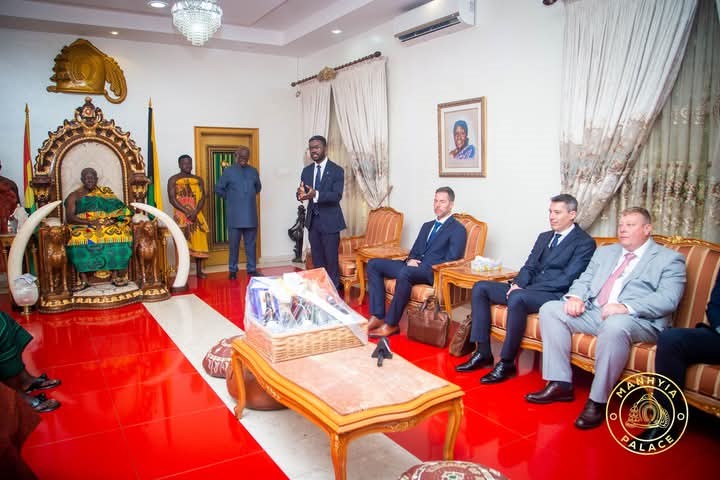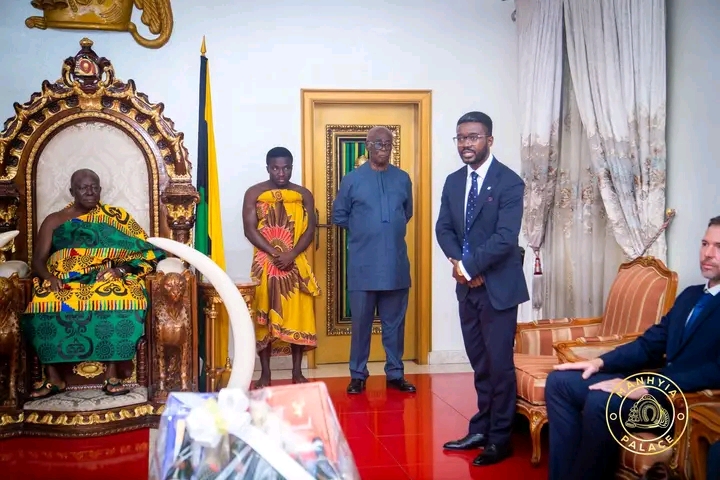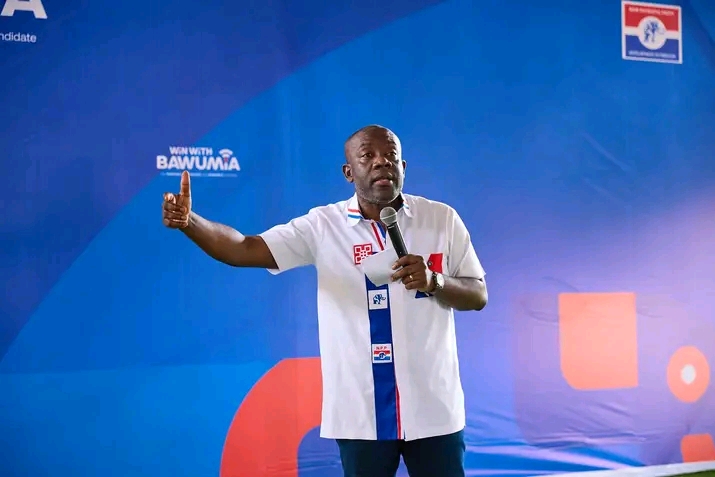Credit Kekeli K. Blamey
Global clean energy firm DreamPower Africa has unveiled an ambitious plan to create over 1.5 million green jobs in Ghana, as part of a broader effort to boost youth employment and support the country’s transition to renewable energy.
During a courtesy call at the Manhyia Palace, the company’s Chief Operating Officer, Stephen Onyina Karikari, presented a three-phase strategy aimed at transforming Ghana’s energy sector. He emphasized the importance of local expertise, revealing that the initiative will significantly depend on homegrown talent to ensure sustainable job creation.
“In rolling out this plan, we are committed to using local expertise. That’s why we are proposing a partnership with the Kwame Nkrumah University of Science and Technology (KNUST) to set up an institute focused on training personnel in the green economy—specifically in servicing, maintenance, and related technical skills,” Mr. Karikari explained. He added that domestic production of solar components, rather than relying on imports, will drive job creation.
Three-Phase Green Energy Plan
The first phase of the initiative will prioritize the solarization of essential public and private institutions, including Parliament, ministries, and hospitals, to ensure uninterrupted power supply—especially in key industrial zones.
Phase two involves establishing a nationwide electric vehicle (EV) charging network. DreamPower plans to partner with both the public and private sectors to install EV charging stations at Goil fuel stations and major transportation hubs, such as STC terminals.

The final phase will focus on setting up a large-scale EV assembly plant to manufacture electric buses locally, further supporting Ghana’s green industrialization efforts.
Support from the Asantehene
The Asantehene, Otumfuo Osei Tutu II, welcomed the project, describing solar energy as crucial for Ghana’s development amid ongoing energy challenges and climate change concerns.
“Any nation that aims to advance must embrace clean energy. Ghana continues to face electricity reliability issues while importing fuel. Solar power offers a viable and sustainable solution,” the King stated.
He stressed that despite the country’s energy surplus, consistent and reliable access remains a challenge, making renewable energy indispensable.
“Green energy is no longer optional—it’s essential. If DreamPower presents a solid and beneficial proposal, it will have our full support,” he affirmed.
The Asantehene also linked the success of the government’s proposed 24-hour economy to the availability of a dependable power supply. “A 24-hour economy demands 24-hour energy. Industries must have power to function round the clock,” he said.







